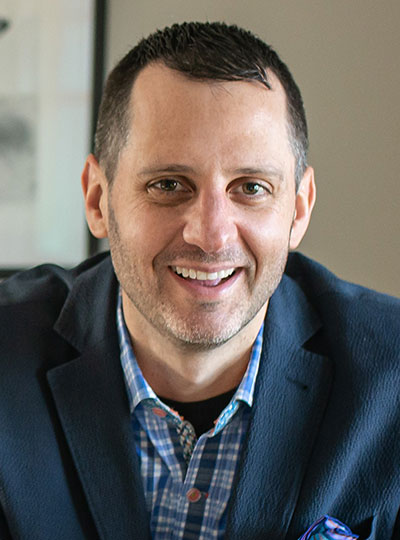|
By: Adam Greenberg, LCSW  In today's digital age, finding love or companionship often begins with a swipe. Dating apps have revolutionized the way we approach relationships, offering a seemingly endless pool of potential matches at our fingertips. However, beneath the surface of convenience lies a landscape marked by imbalances, both in the dating world and in mental health. As society embraces the digital era, it's crucial to examine the ramifications of this shift, particularly on individuals' psychological well-being.
-
The Illusion of Choice: Dating apps present users with a multitude of options, fostering the illusion of an abundant dating pool. However, research suggests that this abundance paradoxically leads to indecision and dissatisfaction. Dr. Barry Schwartz, a psychologist, coined the term "the paradox of choice," highlighting how an excess of choices can overwhelm individuals and diminish their overall happiness. In the context of dating apps, this abundance can lead to a perpetual cycle of swiping, as users endlessly seek the elusive "perfect" match, ultimately eroding their satisfaction and confidence.
-
Heightened Rejection Sensitivity: Rejection is an inherent part of the dating process, but dating apps exacerbate its impact. Unlike traditional methods of meeting potential partners, where rejection is often implicit and softened by social cues, dating apps facilitate direct and immediate rejection through swipes or messages. A study published in the Journal of Social and Personal Relationships found that online rejection can elicit stronger emotional responses compared to face-to-face rejection, due to its perceived impersonal nature. Constant exposure to rejection on dating apps can fuel feelings of inadequacy, anxiety, and depression, particularly among individuals already prone to rejection sensitivity.
-
Comparison Culture: Dating apps encourage users to evaluate potential partners based on superficial criteria such as appearance, height, or income. This emphasis on external attributes fosters a culture of comparison, where individuals constantly measure themselves against idealized standards. Dr. Emma Zurcher-Long, a clinical psychologist, warns that comparison culture can fuel feelings of insecurity and low self-worth, as users internalize the belief that they must conform to societal beauty norms to be deemed desirable. Moreover, the curated nature of profiles on dating apps often presents an unrealistic depiction of reality, further distorting perceptions and exacerbating feelings of inadequacy.
-
Hookup Culture vs. Meaningful Connections: While dating apps offer a platform for meeting potential partners, they also perpetuate hookup culture, where casual encounters overshadow meaningful connections. A study published in the Archives of Sexual Behavior found that individuals who use dating apps are more likely to engage in casual sex and have a higher number of sexual partners compared to non-users. This emphasis on casual encounters can undermine the pursuit of genuine intimacy and emotional connection, leaving users feeling unfulfilled and emotionally disconnected. Moreover, the transactional nature of interactions on dating apps can commodify relationships, reducing them to mere transactions devoid of genuine emotional investment.
In conclusion, the proliferation of dating apps has introduced significant imbalances into the dating world, while also taking a toll on individuals' mental health. The illusion of choice, heightened rejection sensitivity, comparison culture, and the perpetuation of hookup culture all contribute to a landscape fraught with psychological pitfalls. As we navigate this digital frontier, it's imperative to recognize these challenges and advocate for a more mindful approach to dating—one that prioritizes genuine connections over superficial encounters and safeguards the mental well-being of all involved.
Sources:
- Schwartz, Barry. "The Paradox of Choice: Why More Is Less." Harper Perennial, 2005.
- Slane, Andrea. "When Harry and Sally Swipe Right: A Systematic Review of Online Dating." Journal of Social and Personal Relationships, vol. 36, no. 3, 2019, pp. 855-884.
- Zurcher-Long, Emma. "Social Media and Mental Health: What Does the Evidence Say?" Clinical Psychology Review, vol. 77, 2020, 101841.
- LeFebvre, Leah E. "Swiping Me Off My Feet: Explicating Relationship Initiation on Tinder." Journal of Social and Personal Relationships, vol. 34, no. 9, 2017, pp. 1205–1229.
About the Author...
Mr. Greenberg is dedicated to his clients' well-being, guiding them through life's challenges, including anxiety, depression, communication issues, couple conflicts, and more. He offers a variety of coping strategies and emotional support.
What sets him apart from other therapists, is his ability to implement humor into therapy, promoting a positive perspective on adversity. With a passion for helping others, his diverse career experiences enable him to connect with individuals from various backgrounds.
Mr. Greenberg graduated with honors from Fordham University Graduate School of Social Services. Prior to pursuing a career as a therapist, he accumulated a wealth of experience through working in over 15 diverse jobs spanning 4-5 distinct careers. This journey, complemented by extensive travel and cultural immersion, has uniquely shaped Mr. Greenberg, enabling him to connect with individuals from a wide array of ethnic and cultural backgrounds.
Click here to contact or learn more about Adam Greenberg Last Update: 5/15/2024
|

